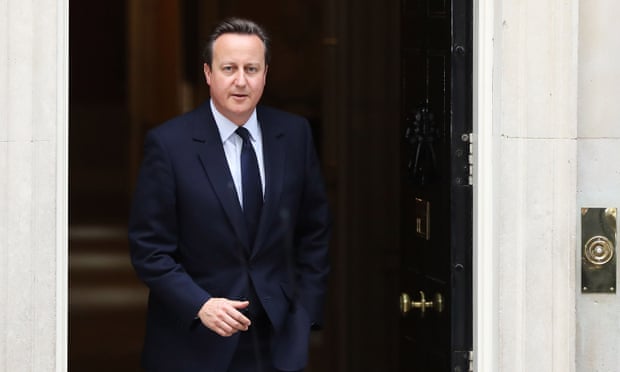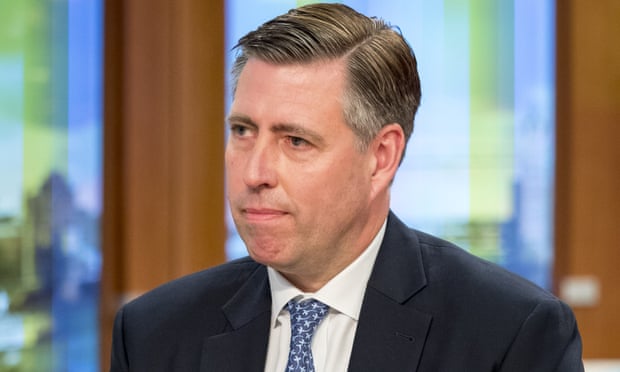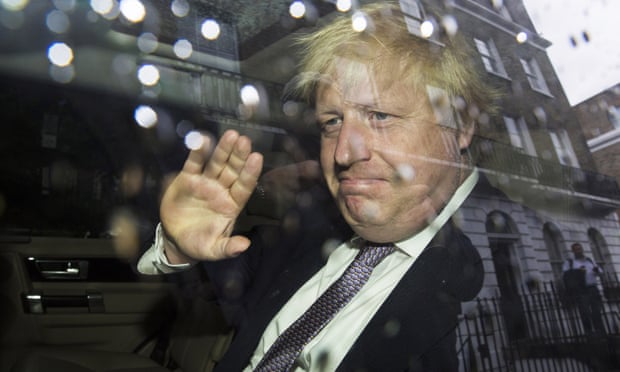NEW YORK — U.S. and European stock markets stumbled again Monday as investors grappled with the fallout from Britain’s historic vote to leave the European Union.
In the United States, the Dow Jones industrial average and Standard & Poor’s 500-stock index fell more than 2 percent before recovering some ground. The tech-heavy Nasdaq fell 2.4 percent. London’s main FTSE 100 index was off 2.6 percent and Germany’s DAX more than 3 percent.
Those losses followed dramatic sell-offs Friday, when the news of Britain’s pending exit — popularly known as Brexit — from the economic and political bloc rocked global markets.
Adding to investor concerns on Monday, S&P Global Ratings lowered its credit rating for Britain to “AA” from “AAA” and said that “the outlook on the long-term rating is negative.”
“In our opinion, [Brexit] is a seminal event, and will lead to a less predictable, stable and effective policy framework in the U.K.,” according to the S&P report. Fitch Ratings followed with its own downgrade and revised down its forecast for the growth of Britain’s gross domestic product through 2018.
Global markets have lost more than $3 trillion in value since Friday. Losses on the S&P 500 over the past two trading days were about $970 billion.
For investors nervous about the uncertainty sparked by Brexit and whether other European countries could stage their own exits, Monday’s turbulence was a discouraging sign that stocks may be entering another prolonged period of volatility. After the worst start to a year on record, stocks spent months fighting their way back into positive territory. Sell-offs in recent days have pushed the Dow, which tracks 30 blue-chip stocks, and the S&P 500, a broader view of the market, back into negative territory for 2016.
After losing 1.5 percent Monday, or 260.51 points, the Dow is now off 1.6 percent for the year. After tumbling 1.8 percent or 36.87 points, the S&P is now off more than 2 percent for the year.
Another powerful trigger of investor anxiety is the steep drop in the British pound. After suffering its biggest one-day drop in history on Friday, the pound fell an additional 3.4 percent Monday. It is now foundering at a 31-year low against the dollar.
“That is a pretty massive move in a currency. We don’t see moves like that in a year, and here we are seeing it in a couple of days,” said Art Hogan, chief market strategist for Memphis-based Wunderlich, an investment firm.
The declining value of the pound is rippling across the globe. It has pushed the value of the dollar higher, making U.S. exports more expensive and, therefore, less competitive. Meanwhile, China is fixing its currency at a lower rate to stay competitive.
Concerns about whether Britain could land in a recession are reverberating through the banking sector. A sluggish British economy could translate into more bank loans going bad and companies holding back on expansion plans, analysts said.
Large U.S. banks with global operations may also suffer, they said. London has long served as the financial gateway into the 28-member E.U. but is at risk of losing that status, and many U.S. banks are grappling with how to adjust to the new reality.
Shares in Barclays and the Royal Bank of Scotland at close Monday were down 21 percent and around 14 percent, respectively, on the New York Stock Exchange. RBS fell a staggering 27.5 percent Friday. In the United States, shares of Bank of America fell 6 percent, while Citigroup and JPMorgan Chase were down 5 percent and 3 percent respectively.
“Banks are generally the best proxy for an economy,” said Firdaus Ibrahim, a banking-industry analyst for S&P Global Market Intelligence. And all of this means “the banks’ profitability will be hit hard, in our view,” Ibrahim said.
Concerns about European banks were particularly apparent in Italy, where, according to
multiple media reports, government officials were weighing the injection of billions into the banking system in the wake of the Brexit vote. Italy’s banks have already endured a high level of bad loans and sluggish economic growth. Brexit could force the country’s central bank to take action to stabilize the sector, analysts said.
The markets were relatively calmer in Asia, where policymakers said they stood ready to act if the markets remained unsettled. Japan’s Nikkei 225 stock index gained about 2.4 percent after falling nearly 8 percent on Friday.
Financial leaders in Europe and the United States, meanwhile, rushed to assure investors on Monday.
“There is no sense of a financial crisis developing,” U.S. Treasury Secretary Jack Lew said in an interview with
CNBC on Monday. “Obviously this is a change in policy that has implications which change the decisions investors make, so I’m not saying there’s not an impact in the markets.”
Britain faces months of political uncertainty after Prime Minister David Cameron, who called the referendum but campaigned for Britain to stay in the E.U., pledged to step down by early September. Opposition lawmakers from the Labour Party attempted to unseat their leader, Jeremy Corbyn, citing his failure to mount an effective campaign for Britain to stay in the E.U., while more than 3 million Britons signed a petition calling for a second referendum.
Adding to the uncertainty, an opinion poll showed a strong majority of Scots want to break with Britain, while Nicola Sturgeon, leader of the Scottish National Party, even raised the possibility of blocking the legislation needed for Britain to exit the E.U.
But the economic uncertainty could drag on for years, with Cameron’s successor facing complex negotiations to leave the world’s largest trading bloc and forge new trade deals around the world.
“A lot of issues in the U.K. are not going to be resolved anytime soon,” said Chris Weston, chief markets strategist at IG in Melbourne, Australia. “For sterling to rally, you want to see some certainty. Otherwise, every rally is just an opportunity to sell.”
Globally, the recovery from the 2008 financial crisis has been sluggish and fragile. Recurring crises over government debt in Europe, a collapse in oil prices and rising concern about China’s slowdown have buffeted financial markets, investment and economic activity. Prolonged uncertainty over Brexit is not going to help.
It is important that British and European policymakers, as well as multilateral institutions, work together in coming days to limit uncertainty, said International Monetary Fund Managing Director Christine Lagarde.
“At this point in time, policymakers both in the U.K. and in Europe are holding that level of uncertainty in their hands,” she said at the Aspen Ideas Festival in Colorado,
Bloomberg reported. “How they come out in the next few days is going to really drive the direction in which risk will go.”









